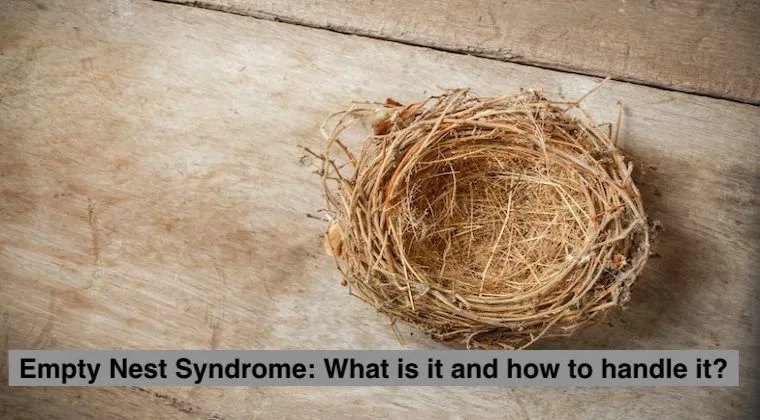+1 845 259 2974 (11 a.m to 7 p.m CST)
Empty Nest Syndrome: What Is It And How To Handle It?

Empty Nest Syndrome is a common emotional experience that many parents face when their children leave home, typically for college, work, or to start their own families. The home that was once filled with the hustle and bustle of daily life suddenly becomes quieter, and this change can evoke a mix of emotions, ranging from sadness and loneliness to a sense of loss and purposelessness. Parents often find themselves at a crossroads, wondering what their role is now that their children no longer need their daily guidance and care.
While these feelings are entirely natural, it’s essential to understand that Empty Nest Syndrome is not the end of something, but rather the beginning of a new chapter. This period offers a unique opportunity for self-reflection, personal growth, and the exploration of new possibilities that may have been put on hold while focusing on raising a family. By embracing this transition with an open mind and a positive attitude, parents can discover new joys and fulfillment in their lives.
Reasons for Empty Nest Syndrome
Empty Nest Syndrome arises from a variety of emotional and psychological factors. One primary reason is the sudden shift in daily routines and responsibilities. For years, parents have devoted much of their time and energy to caring for their children, from helping with homework to attending school events. When children leave, parents may feel a void in their lives, struggling to fill the hours that were once consumed by these activities.
Another significant factor is the change in identity. Many parents derive a strong sense of purpose and identity from their role as caregivers. When children leave home, parents may feel a loss of this identity, leading to questions about their self-worth and purpose. Additionally, the physical separation from children can trigger feelings of loneliness and anxiety, especially if the parent-child relationship was particularly close. Understanding these reasons can help parents address their emotions more effectively and take proactive steps toward managing Empty Nest Syndrome.
5 Ways to Deal with Empty Nest Syndrome
1. Rediscover Personal Interests
One of the best ways to manage Empty Nest Syndrome is to rediscover personal interests that may have taken a backseat while raising your children. Now is the perfect time to focus on hobbies and passions that bring you joy and fulfillment. Whether it’s painting, gardening, writing, or exploring new activities, engaging in things you love can bring a sense of purpose and excitement back into your life. By dedicating time to your interests, you not only keep yourself occupied but also enrich your life with new experiences and achievements.
2. Strengthen Relationships
With more time on your hands, it’s an excellent opportunity to reconnect and strengthen relationships with your spouse, friends, or other family members. The bond with your partner may have changed over the years, but this is a chance to rediscover each other and enjoy quality time together. Whether it’s going on date nights, traveling, or simply spending time talking, rekindling your relationship can bring back the spark that may have dimmed during the busy years of parenting. Additionally, reconnecting with friends and loved ones can provide support and companionship, making this transition smoother.
3. Stay Connected with Your Children
Even though your children have moved out, staying connected with them is crucial for managing Empty Nest Syndrome. Regular communication, whether through phone calls, video chats, or visits, can help maintain a strong bond and reduce feelings of loneliness. It’s important to find a balance between giving them the space they need to grow independently and staying involved in their lives. Being there for your children when they need guidance or support can strengthen your relationship and ease the transition for both you and them.
4. Pursue New Goals
With your children out of the house, you have the freedom to set new personal or professional goals. This is the time to explore new avenues, whether it’s starting a new career, pursuing higher education, volunteering, or learning a new skill. Achieving new goals can provide a sense of accomplishment and purpose, helping you redefine your identity beyond that of a parent. Setting and working towards these goals will not only keep you engaged but also bring a fresh sense of excitement and direction to your life.
5. Join Support Groups or Counseling
Sometimes, managing Empty Nest Syndrome requires additional support, and that’s perfectly okay. Joining support groups with others who are going through the same experience can provide comfort and a sense of community. Sharing your feelings and hearing how others are coping can be incredibly reassuring. Additionally, seeking counseling can help you navigate the emotional aspects of this transition, offering professional guidance and coping strategies. There’s no shame in reaching out for help; it’s a proactive step towards healing and finding happiness in this new phase of life.
While Empty Nest Syndrome can be a challenging experience, it’s also an opportunity to rediscover yourself and embrace new possibilities. By focusing on personal interests, strengthening relationships, staying connected with your children, pursuing new goals, and seeking support when needed, you can manage this transition with grace and positivity. Remember, this is a new chapter in your life, one that holds the potential for fulfillment and happiness. Embrace it with an open heart, and you’ll find that there’s so much more to look forward to in this exciting phase.























